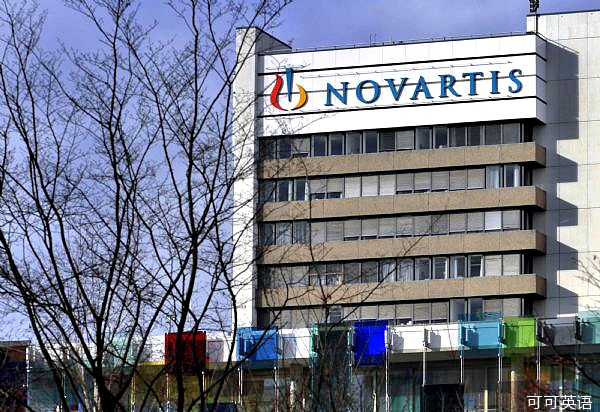(单词翻译:单击)

Big Pharma is still big, but its business model is dying. For years, the game in pharmaceuticals has been to research, discover and then fiercely defend billion-dollar drugs.
大型医药公司的规模依旧庞大,但商业模式却开始走下坡路。多年以来,制药领域通常的做法都是研究、发现,然后拼命守护能带来数十亿美元收入的药物。
But several mighty drug companies are losing the rights to exclusively own the formulas for best-selling drugs. Take Pfizer (PFE), which made a killing off cholesterol medication Lipitor. In 2012, Pfizer lost the exclusive rights to the drug, opening it up to competition from companies that produce cheaper, generic versions.
然而,个别大型医药公司却正在失去畅销药配方的专有权。辉瑞制药(Pfizer)就是一个例子。它生产一种降胆固醇药物立普妥。2012年,辉瑞失去了对这种药物的专有权,生产廉价非专利药的公司将和它展开竞争。
That hurt. CEO Ian Read explained in the 2012 third-quarter earnings report, "Year-to-date we have absorbed approximately $5.5 billion in LOEs." An "LOE" is a loss of exclusivity to drug formulas, including Lipitor and others in this case, and $5.5 billion is no joke.
这给公司带来了严重影响。2012年第三季度收益报告中,公司CEO伊恩?里德解释道:“年初至今,因失去专有权带来的损失约为55亿美元。”其中涉及的药物包括立普妥和其他药物。55亿美元可不是个小数目。
So how can drug companies prevent these kinds of losses? One way, Novartis CEO Joseph Jimenez suggested to Fortune, is to re-imagine what is known as a blockbuster, or a drug that earns the company at least $1 billion per-year. "The definition of a blockbuster is changing," Jimenez said.
那么,制药公司应该如何避免这种情况发生呢?诺华公司CEO江慕忠向《财富》杂志(Fortune)建议的方法是,重新思考所谓的“拳头产品”,或者每年至少能给公司带来10亿美元收入的药物。江慕忠认为:“对拳头产品的定义正在发生变化。”
The old concept of a blockbuster has generally been one drug to treat one disease that affects a large population. Because blockbusters are so profitable, companies scramble to squeeze as much money out of them as possible, arguably in a way that detracts from efforts to research and develop novel treatments.
传统观念认为,“拳头产品”所指的药物能够治疗影响大量人口的疾病。由于拳头产品利润非常可观,因此各大公司都想尽可能地从中榨取利润,导致公司减少了在新药研发方面的支出。
For example, large pharmaceutical companies have invested in what's known as "me-too" drugs. Companies make drugs with the same basic formulas as some of their bestsellers, tweak them slightly, and re-package them as new treatments. That strategy won't work for much longer, says Jimenez, given that the Affordable Care Act will discourage me-too drugs. Previously, to get FDA approval, companies had to prove that new drugs performed significantly better than a placebo, but they didn't have to show that the treatment performed better than drugs already on the market. Under the ACA, "new" drugs that don't perform significantly better than current options won't be eligible for reimbursement from insurance companies.
例如,大型医药公司通常会投资生产所谓的“仿制”药物。公司生产这类产品所使用的基本配方与其拳头产品完全相同,只是对其进行稍微改动和重新包装,便作为一种新药出售。江慕忠认为,这种策略不可能长久,因为《平价医疗法案》(Affordable Care Act)并不支持仿制药物。之前,为了获得美国食品和药品管理局(FDA)的批准,公司必须证明新药物的药效明显好于安慰剂,但不需要证明该药物的治疗效果好于已上市的药物。但根据《平价医疗法案》,如果“新”药物的药效不能显著好于已上市药物,将无法获得保险公司的赔偿。
This means Big Pharma has a couple of options. For one, they can fight to keep the rights to blockbusters. Pfizer has had some success with this; its hugely profitable drug Viagra was supposed to go off patent in 2012, but the company managed to extend its exclusivity rights until 2020.
这意味着大型医药公司只有两条路。一是努力保住对拳头产品的专有权。辉瑞制药在这方面有过成功的经验;辉瑞原本应该在2012年就会失去伟哥(Viagra)产品的专利保护权,但公司成功把专有权延长到了2020年。
But here's a crazy idea -- what about making new drugs? The catch is that competition is fierce in areas with big patient populations such as erectile dysfunction and heart disease. But Novartis has decided re-think the methodology behind drug development, Jimenez says.
但还有另外一个疯狂的想法——研发新药怎么样?目前,医药领域的问题是,在患者群体庞大的领域,如性功能障碍和心脏病领域,竞争非常激烈。而江慕忠表示,诺华公司决定重新考虑药物开发方案。
It takes into account the fact that, in general, effective research and development doesn't come from targeting the most profitable problems. Basic research often takes many twists and turns. The discovery of Penicillin, famously, was a happy accident. Novartis (NVS) has a new strategy to try to generate that kind of serendipity. Instead of targeting a disease with a massive patient population, the company is instead targeting pathways, or the distinct biological mechanisms that cause a disease.
公司考虑到这样一个事实,即最成功的研发起初并不是直接针对盈利前景最好的医疗问题。基础研究通常会经历种种波折。盘尼西林便是最有名的例子,它的发现完全是一个意外之喜。诺华公司新策略的目的就是找到这种意外的惊喜。公司并不是把患者群体庞大的疾病作为目标,而是将药品开发途径或导致疾病的不同生物机制作为重点。
The company has seen some success with this method. It developed its drug Afinitor, for example, for with the idea to target a cluster of diseases. Afinitor was first approved to treat kidney cancer. But research demonstrated that it also works in patients with some lung and breast cancers. Sales of Afinitor for breast cancer do not add up to $1 billion, neither do sales of Afinitor as a kidney cancer or lung cancer treatment. But looking at the sales numbers combined, it makes a blockbuster.
这种方法已经取得了一定的成功。例如,公司针对一系列疾病研发的药物依维莫司(Afinitor)最初被批准用于肾癌治疗。但研究证明,这种药物对于治疗肺癌与乳腺癌同样有效。将依维莫司作为治疗乳腺癌的药物,它的销量达不到10亿美元,而作为治疗肾癌或肺癌的药物,它的销量同样达不到10亿美元。但如果将三者综合起来,依维莫司便可以成为诺华公司新的拳头产品。
There are pros and cons to this method. According to a February analyst report from Morningstar, Novartis is well positioned for good long-term growth. But investors need to understand that this kind of growth can take time. The old blockbuster-finding strategy hasn't been sustainable, but it's been profitable immediately. Novartis is taking a different route through drugs that treat smaller patient populations.
当然这种方法有利有弊。晨星公司(Morningstar)二月份的分析师报告显示,诺华公司具备长期良性发展的条件。但投资者必须理解,这种增长需要时间。传统的寻找拳头产品的策略虽然不能持久,但却能迅速产生利润。而诺华公司致力于针对患者人群较小的药物,走了一条截然不同的道路。
Investors aren't always willing to be patient. For example, in 2009, Novartis received approval for Ilaris, a drug that treats CAPS, a class of rare, potentially fatal autoinflammatory diseases that can cause fevers and chills, bone deformities, and loss of vision. "Many of our people said, 'Why are you designing a drug for only 6,000 people in the world; CAPS is so rare?'" No one else was making drugs to treat the disease.
投资者往往都缺乏耐心。例如,2009年,诺华研发的药物Ilaris获批用于冷吡啉相关周期性综合症(CAPS)的治疗。CAPS是一种罕见的、可能致命的自体发炎性疾病,可能导致发热、发冷、骨畸形和失明。“公司许多人都说:‘你们为什么生产这样一款药物?全球只有6,000人患有这种疾病;CAPS太罕见了。’”没有其他任何一家公司在生产治疗这种疾病的药物。
But the idea is that cracking the code to treat CAPS will lead the way to treatment of other diseases caused by the same mechanism.
而诺华公司的观点是,在CAPS治疗中的突破可以为由相同机制引发的其他疾病的治疗提供思路。
Using this strategy, Novartis will not bet the farm on finding the next massive breakthrough, such as an Alzheimer's drug, which is a tack its competitors have taken.
通过这种策略,诺华公司不再将赌注压在寻找下一个巨大的突破上,例如其他竞争对手正在关注的阿尔茨海默病(俗称老年痴呆症)药物。
But there are clear pros to the company's plan. For one, Novartis will make treatments for rare diseases that could ultimately blossom into blockbusters by virtue of their application to multiple maladies. Even the drugs that don't materialize into great sales numbers will get the company into a new market.
公司的计划有非常明显的优势。比如,诺华公司生产治疗罕见疾病的药物,通过药物在不同疾病中的疗效,最终可能成为公司的拳头产品。即使药物无法取得庞大的销量,但仍可以为公司打开新的市场。
And to chuck the business angle for a moment, the big-picture pro of this strategy is that it means Novartis will be making medicine for people who need it, despite the industry straying from that somewhat as an effective business strategy.
暂且抛开商业角度不谈,这种策略的一个巨大优势在于,它意味着诺华公司将为有需要的患者生产药物,这才是医药公司行之有效的商业策略,尽管整个医药行业正在偏离这一轨道。
Making drugs, after all, is what drug companies are supposed to do.
毕竟,生产药品才是制药公司的本分。


